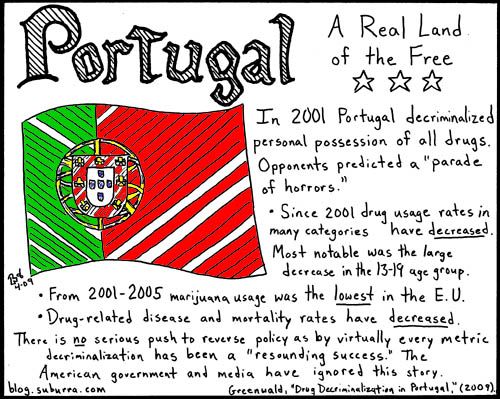Scientific American on Portugal's drug decriminalization
 In the face of a growing number of deaths and cases of HIV linked to drug abuse, the Portuguese government in 2001 tried a new tack to get a handle on the problem—it decriminalized the use and possession of heroin, cocaine, marijuana, LSD and other illicit street drugs. The theory: focusing on treatment and prevention instead of jailing users would decrease the number of deaths and infections.
Five years later, the number of deaths from street drug overdoses dropped from around 400 to 290 annually, and the number of new HIV cases caused by using dirty needles to inject heroin, cocaine and other illegal substances plummeted from nearly 1,400 in 2000 to about 400 in 2006, according to a report released recently by the Cato Institute, a Washington, D.C, libertarian think tank.
"Now instead of being put into prison, addicts are going to treatment centers and they're learning how to control their drug usage or getting off drugs entirely," report author Glenn Greenwald, a former New York State constitutional litigator, said during a press briefing at Cato last week.
...
"Drug decriminalization did reach its primary goal in Portugal," of reducing the health consequences of drug use, he says, "and did not lead to Lisbon becoming a drug tourist destination."
Thanks Nat. Graphic courtesy of Suburra.com.
|

Recently @ DoseNation
|
|






















The comments posted here do not reflect the views of the owners of this site.